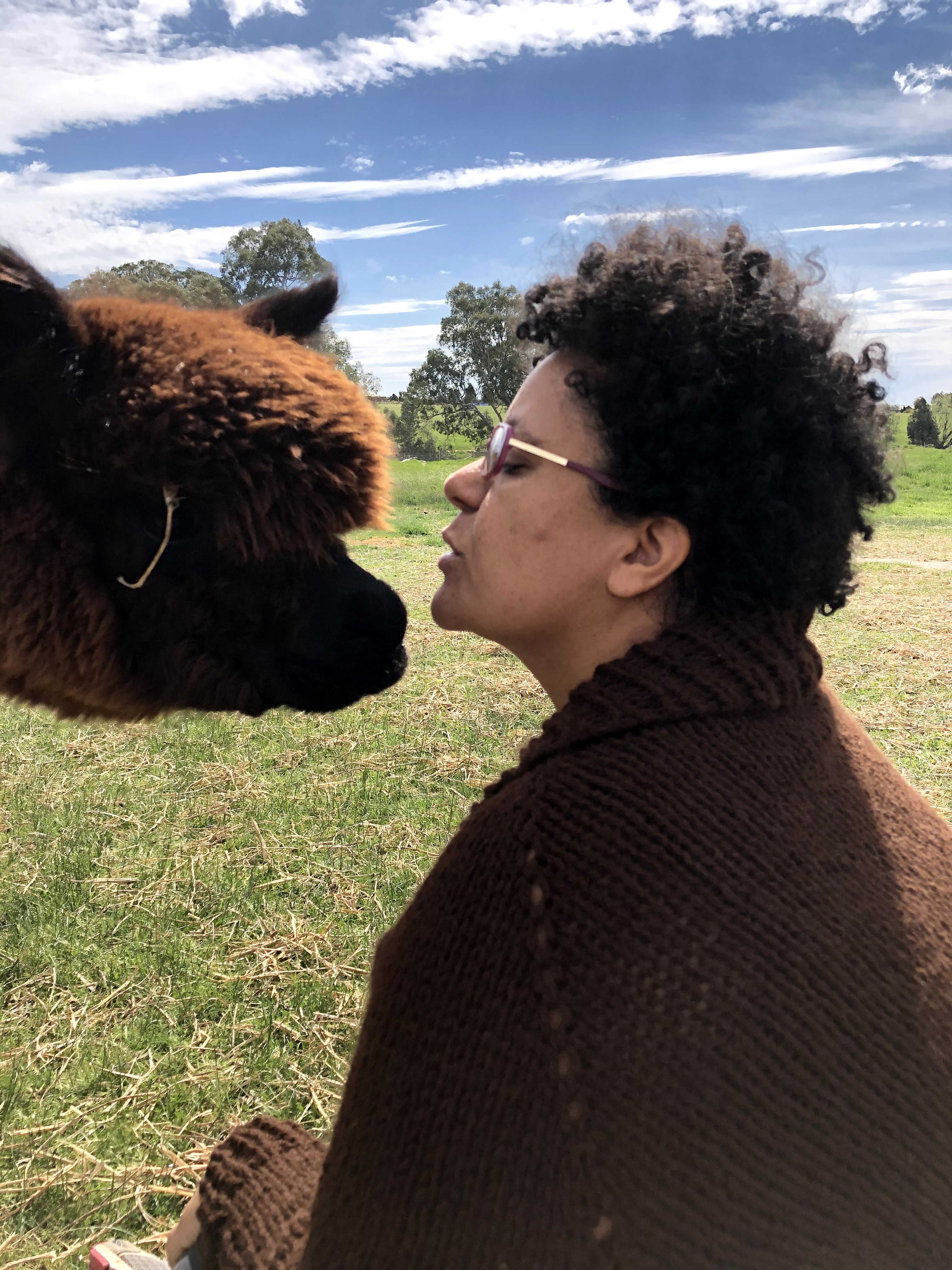Think twice before bringing home a baby alpaca!
- Rita

- Apr 5, 2024
- 3 min read
With their innocent and unusual cuddly looks, baby alpacas often attract much interest from the public. Many prospective alpaca owners believe babies are the best way for them to get started with alpacas. However, before you start searching the internet or social media for 'baby alpacas for sale ', it's crucial to understand the dangers lurking behind these cute fluff balls.

Alpacas are herd animals, not pets
Alpaca babies are known as crias. They depend on maternal milk for the first months of life until they transition to a grazing diet.
Alpacas, being herd animals, have a natural development process. Crias, or alpaca babies, learn by observing their mothers and interacting with other crias and aunties. Crias must stay with their mothers until weaning, typically around six to eight months. In the best interest of the alpacas, some breeders will wait until the weanlings are at least one year old before releasing them for sale. This ensures that young alpacas receive appropriate handling, learn to 'be alpacas', and develop into healthy animals. It also ensures that males are castrated at an appropriate age.

You might be tempted to buy “bottle babies” or young crias, thinking they will be cute to have around, will play with your children, and will get used to you and your family. Many erroneously believe buying young alpacas will help them become “friendly”. That’s nothing further from the truth.
Raising crias away from their mums and herd can create health and behavioural issues in the future. Health issues can occur when crias are weaned too early, failing to develop appropriate weight and milestones. I once was called by a neighbour who had bought two “young alpacas” and who was concerned “they were not eating”. When I visited her property and saw the alpacas, I was appalled. They looked like they were barely three months old. When I put my hand on their backs, I could quickly feel their spine and ribs – they were just bones. I wasn’t surprised when the owner called me the day after to say one of them had died.
When baby turns into a crazy adult alpaca
Behaviour issues are the most common problem when novice owners raise crias. Young alpacas inappropriately raised by inexperienced owners can develop dangerous behaviours once they grow up. This is often called “berzerk male syndrome.” It involves alpacas chasing, rearing up, spitting at, biting, and knocking over humans. Although it is often seen in males who have been raised inappropriately as young, it can also occur in females.
This has happened to me. I have been knocked over, stomped at, spat at, bitten, and, something I will never forget: pinned to a star picket by a 100kg male who reared up on me. I thought I was going to die. Thankfully, my screams caught my partner's attention, who came to the rescue. If I showed you a picture of that male as a baby, you probably wouldn’t believe he could have caused so much distress as an adult.
Perhaps the worst thing about crias being raised inappropriately is the often not-talked-about aftermath: they become unwanted adult alpacas, often passed around from home to home until their fateful end: being put down. To no fault of their own, their lives have been cut short due to humans not understanding camelid behaviour and raising them incorrectly.
So, okay, you tell me, “I understand all of this. I still want to buy young alpacas so they get used to me and become friendly.” My response is simple: You shouldn’t buy alpacas because you want them to be friendly. If you want friendly, buy a dog or a cat.
Prospective alpaca owners must understand that crias will eventually grow into adult alpacas, weighing anything from 60-100kg with a lifespan of around 20 to 25 years.
Alpacas raised by knowledgeable, experienced, and ethical breeders will grow into what they should be: well-functioning alpacas that enjoy the company of other alpacas and are not a danger to humans.
Whether you purchase adult or young alpacas, there will be a period of adjustment. Building trust takes time and skill. Alpacas are very different from other livestock most people know. There are books and courses you can do to understand them better and learn ethical and kind techniques that will make managing them easier. My deepest connections are with alpacas I purchased as adults and elderly ones.
Leave those cute babies to breeders. If you want alpacas, visit a farm and do a course to learn more about them. See if they are the animal that suits you and if you are the owner that they require.
Responsible ownership entails recognizing the long-term commitment of caring for alpacas throughout their lives, ensuring their well-being, and understanding their unique requirements as herd livestock.



